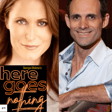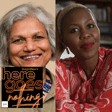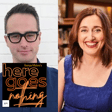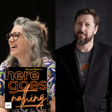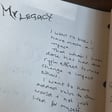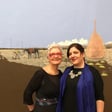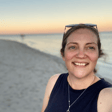
Episode 1: An Introduction with Jo Malone
Welcome to the first episode of Here Goes Nothing - a dive into the impact of arts and culture on our lives.
Guest: Jo Malone
Jo Malone is currently the Head of Philanthropy at the Foundation of the WA Museum. She has had a long career in raising money for arts organisations in Perth including Perth Institute of Contemporary Arts, Perth Festival, St George's Cathedral and for a time consulted with nearly all small to medium arts organisations on their fundraising strategy. But most importantly, she is the one that took me to my first show, Peter Pan, at the age of 4. Put me in dance classes at 2 ½ and constantly supported my brother and I in anything we did which culminated for me as my first time as stage manager of the massive school production in year 12.
Mum and I talk a lot. We solve the problems of the world and discuss a wide range of topics. We aren't experts, we are the audience. We aren't always right but say things with confidence!
